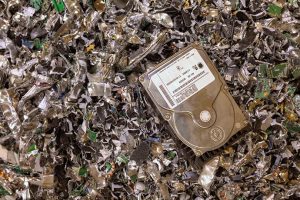 Indian authorities find manufacturers are failing to meet extended producer responsibility requirements, and authorized recycling companies in the U.K. create a new forum to communicate with public agencies.
Indian authorities find manufacturers are failing to meet extended producer responsibility requirements, and authorized recycling companies in the U.K. create a new forum to communicate with public agencies.

 Indian authorities find manufacturers are failing to meet extended producer responsibility requirements, and authorized recycling companies in the U.K. create a new forum to communicate with public agencies.
Indian authorities find manufacturers are failing to meet extended producer responsibility requirements, and authorized recycling companies in the U.K. create a new forum to communicate with public agencies.
 A local government grows concerned about financing e-scrap collection without state grants, and a for-profit business, non-profit group and city partner on e-scrap recycling in Arizona.
A local government grows concerned about financing e-scrap collection without state grants, and a for-profit business, non-profit group and city partner on e-scrap recycling in Arizona.
Fireproof Records Center of Columbus, Ohio and Total Destruction of Alamogordo, N.M. have either achieved or renewed their NAID certifications for physical destruction of hard drives.
Cascade Asset Management – Indianapolis of Indianapolis; Cascade Asset Management of Madison, Wis.; EPC’s E-Scrap Processing Center of Wright City, Mo.; and Supply-Chain Services of Lombard, Ill. have renewed their NAID certifications for hard drive sanitization as well as physical destruction of hard drives.
Also, Jabil Environmental Technologies has achieved R2 and RIOS certifications at the company’s facility in Memphis, Tenn. Jabil also recently achieved NAID certification for physical destruction of hard drives.
Visit our archive to view previous editions of the scorecard.
 Are Apple’s new iPhones environmentally friendly? It depends on which rating system you ask.
Are Apple’s new iPhones environmentally friendly? It depends on which rating system you ask.

Sarah Murray of the Wisconsin Department of Natural Resources speaks at E-Scrap 2017.
When it comes to CRT management, the profit is shaky and the industry is littered with horror stories of stockpiles and legal battles to determine who pays for cleanup.
 Stakeholders have come to settlements in lawsuits over an explosion caused by batteries from used electronics in North Carolina.
Stakeholders have come to settlements in lawsuits over an explosion caused by batteries from used electronics in North Carolina.
 Sims Recycling Solutions’ consolidation of U.S. e-scrap shredding operations yielded financial benefits and more clearly drew a line between its shredding and reuse activities. That was one takeaway from a recently released annual report.
Sims Recycling Solutions’ consolidation of U.S. e-scrap shredding operations yielded financial benefits and more clearly drew a line between its shredding and reuse activities. That was one takeaway from a recently released annual report.
 A state program collects less weight than it did a year ago, and more than a dozen mobile phones are now listed as EPEAT silver or gold.
A state program collects less weight than it did a year ago, and more than a dozen mobile phones are now listed as EPEAT silver or gold.
 The battery recycling market is predicted to grow due to government regulation, and Australians hold onto their old electronics rather than recycling them.
The battery recycling market is predicted to grow due to government regulation, and Australians hold onto their old electronics rather than recycling them.
Blue-Pencil Mobile Shredding of Oakville, Ontario; Confidential On-Site Paper Shredding (COPS) of Normal, Ill.; Goodwill Southern California Secure Shredding of Los Angeles; Infoshred of East Windsor, Conn.; Ingram Micro of Pine Brook, N.J.; Secure Document Solutions of Independence, Mo.; Stevens & Stevens Business Records Mgmt of Clearwater, Fla. and Vanish Document Shredding of Houston have either achieved or renewed their NAID certifications for physical destruction of hard drives.
Visit our archive to view previous editions of the scorecard.
